
In a panel, pharmacy technicians across the world discuss the differences of the role for pharmacy technicians in United States, Portugal, and the United Kingdom.

In a panel, pharmacy technicians across the world discuss the differences of the role for pharmacy technicians in United States, Portugal, and the United Kingdom.

In a panel, pharmacy technicians across the world discuss the qualifications and training pharmacy technicians need to have in the United States, Portugal, and the United Kingdom.

As part of American Pharmacist Month, Pharmacy Times is asking experts what they believe the value of the pharmacist is.

As part of American Pharmacist Month, Pharmacy Times is asking experts what they believe the value of the pharmacist is.

In a panel, pharmacy technicians across the world discuss the importance of pharmacy technicians and how they plan to celebrate National Pharmacy Technician Day.

A researcher suggests that novel immune modulating cancer therapies like cancer vaccines can be more effective and safer alternative to previous cancer immunotherapies.

As part of American Pharmacist Month, Pharmacy Times is asking experts what they believe the value of the pharmacist is.

Rami Elghandour, chairman and CEO of Arcellx, discussed the company’s investigative CAR-modified T-cell therapy.
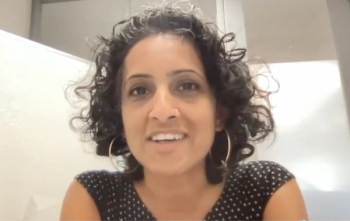
As a part of the Women in Pharmacy series, Vibhuti Arya, PharmD, MPH, FAPhA, global lead, Gender Equity and Diversity Workforce Development at FIP, discusses moments that shaped her vision for her career in pharmacy.
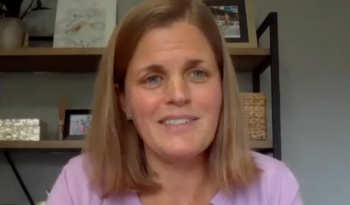
This World Standards Week, Carrie Harney, JD, vice president, US Government and Regulatory Affairs at US Pharmacopeia (USP), explains how pharmacists contribute to USP’s standards setting process.

As part of American Pharmacist Month, Pharmacy Times is asking experts what they believe the value of the pharmacist is.

Jeremy Graff, chief scientific officer at IMV, discusses why the development of viable cancer vaccines is a bit more slow-going in comparison to the fast-paced development of COVID-19 vaccines during the pandemic.

New research suggests that ketamine can help rehabilitate those who suffer from an eating disorder, and it is important to recognize the root cause of this mental health crisis.

As part of American Pharmacist Month, Pharmacy Times is asking experts what they believe the value of the pharmacist is.
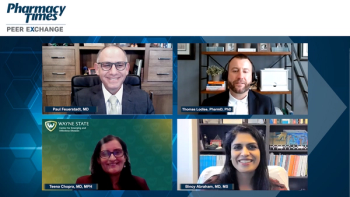
Experts share advice for physicians taking care of patients with C. difficile infection (CDI).

Bincy Abraham, MD, MS; Thomas Lodise, PharmD, PhD; Teena Chopra, MD, MPH; and Paul Feuerstadt, MD, share unmet needs, including access to therapies, in treatment of C. difficile infection (CDI).
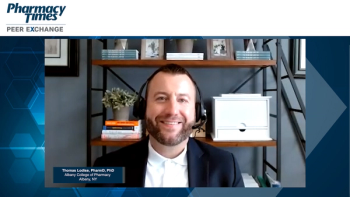
Experts discuss differences in designs of clinical trials of 4 emerging microbiota-based live biotherapeutics - RBX2660, SER-109, CP101, VE303, for treatment of rCDI.

Heidi D. Finnes, PharmD, BCOP, FHOPA, president of HOPA discusses some key recommendations to women interested in pursuing leadership roles in oncology pharmacy.

A researcher suggests that understanding specific cell function in the tumor microenvironment can help create effective and individualized immunotherapy cancer treatments.

Nakia Eldridge, PharmD, MBA, discussed her career, the impacts of COVID-19 on women in pharmacy, and how mentorship can pave the way for more women pharmacists.

As part of American Pharmacist Month, Pharmacy Times is asking experts what they believe the value of the pharmacist is.

Suzanne Soliman, PharmD, BCMAS, discusses how she will be celebrating the important contributions of women pharmacists.

As part of American Pharmacist Month, Pharmacy Times is asking experts what they believe the value of the pharmacist is.

Jeanine Singer, senior vice president of Field Sales and Operations at McKesson, discusses being appointed to the NCPA Innovation Center Board of Directors.
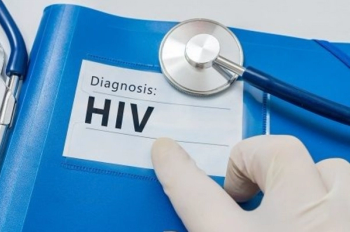
Clinical studies have shown similar efficacy between emtricitabine and tenofovir alafenamide (Descovy) and emtricitabine and tenofovir disoproxil fumarate (Truvada) for individuals at risk for HIV infection.

New research suggests that MDMA may offer promising benefits to patients with certain unmet psychological treatment needs.

Michael Barr, MD, MBA, MACP, FRCP, discusses the importance of physicians and pharmacists sharing skills to increase positive patient outcomes.
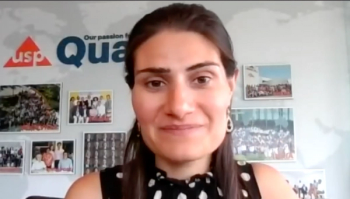
Farah Towfic, PharmD, MBA, RPh, director, CEO Operations, US Pharmacopeia, details some of the moments that led her to the pharmacy field and the important role that mentorship played in that process.

New research suggests that psychedelics, and specifically ketamine, can increase neuroplasticity to help a patient with an eating disorder get “unstuck,” and help treat the disorder better than psychotherapy alone.

Yvonne Chen, PhD, discusses some of the strategies that researchers are using to improve T-cell effectiveness and overcome immunosuppression in CAR T-cell therapy.